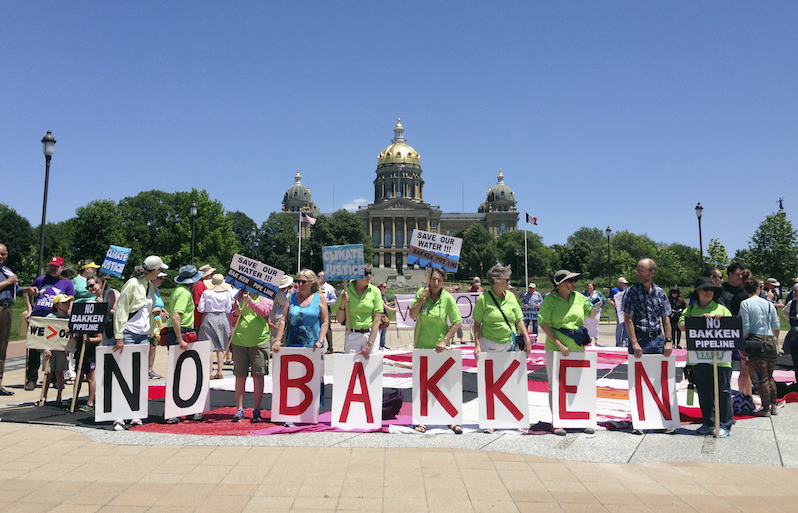Water Is Life, Oil Is Death: The People vs. the Bakken Pipeline in Iowa and the Dakotas
While most of the United States has been blinded by the presidential election spectacle, a grass-roots coalition has been fighting "the next Keystone XL” being pushed through—largely under the radar—by Big Carbon. People opposing the Dakota Access pipeline project, also known as the Bakken pipeline, rally in Des Moines, Iowa. (Barbara Rodriguez / AP)
1
2
3
People opposing the Dakota Access pipeline project, also known as the Bakken pipeline, rally in Des Moines, Iowa. (Barbara Rodriguez / AP)
1
2
3

People opposing the Dakota Access pipeline project, also known as the Bakken pipeline, rally in Des Moines, Iowa. (Barbara Rodriguez / AP)
Independent journalism is under threat and overshadowed by heavily funded mainstream media.
You can help level the playing field. Become a member.
Your tax-deductible contribution keeps us digging beneath the headlines to give you thought-provoking, investigative reporting and analysis that unearths what's really happening- without compromise.
Give today to support our courageous, independent journalists.






You need to be a supporter to comment.
There are currently no responses to this article.
Be the first to respond.